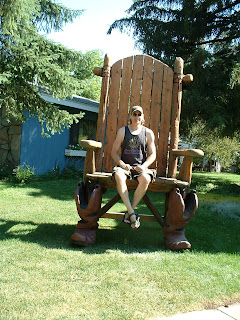What about consideration of using sick leave banks for addicts?
Most of us know or probably have met someone who has
suffered or is battling addiction and have seen these bad consequences. It’s
refreshing when we see our friends and colleagues start trying to get a grip on
their problem by seeking out professional help. Hospital treatment and
rehabilitation is mighty expensive and sometimes insurance (if you have any)
only covers a portion. This is where public and private employers can lend a
helping hand.
Some
workplaces already utilize sick-leave banks. A normal protocol to qualify for such
a program starts with donating a small amount of your own sick time. This
accrued, along with others creates a bank of days, which helps pay for
colleagues who desperately seek our help.
However, addiction is a delicate
subject, considering anonymity, potential stigmas and such; but we have constructive
ways to address this. Some employers use boards that vote on whether the sick
person is justified or qualified in being granted some of their fellow
employees donated sick-time. Many employers have policies that differ from
others standards. Also, some people may want to donate and / or exclude donating
some of their sick time, for under specific circumstances.
Perhaps some of the solution lies
with employing a type of double-blind mechanism, which, with some type of informal checklist identifies
various aspects of the ill candidate’s situation; How bad off do we think they really are? How long
have they worked here? How valuable is their position? Do they have family,
etc., but never their actual name, or at least follows a standard, which attempts to
keep the ill persons name vague or obscured. (This might be impractical for
smaller organizations.)
I shared these thoughts with B., an Anonymous
friend, who put it best: “We come together as a community, and as fellow employees in
cohesive companies, we pull together often to help with so many issues beyond
simpler impactful events, like a household fire.
“So
whether it's a child in a family with an expensive cancer treatment, or perhaps
an employee suffering from bulimia, (such as the incredibly talented but
struggling singer Karen Carpenter). Alcoholism, as with those also struggling
from opioid addiction based on an injury, should fall in the same class of
"worthy effort" categories.
“Education
would help eradicate those still harboring mistaken beliefs that those
struggling with (the media infused temptation of alcohol) really do not want to
get better. They want to work at it, and, once given fair time slots and
resources to secure their chances of beating it, (plus not lose them as worthy
employees doing a great job despite), how is alcoholism not in the subset of
the other life challenges? I'm sure Karen did not want to end her life of music
with organ shutdown, she just needed more educated, active intervention;
perhaps her life could have been saved and we would have had 20+ more years of
her amazing voice.”
-->

Comments